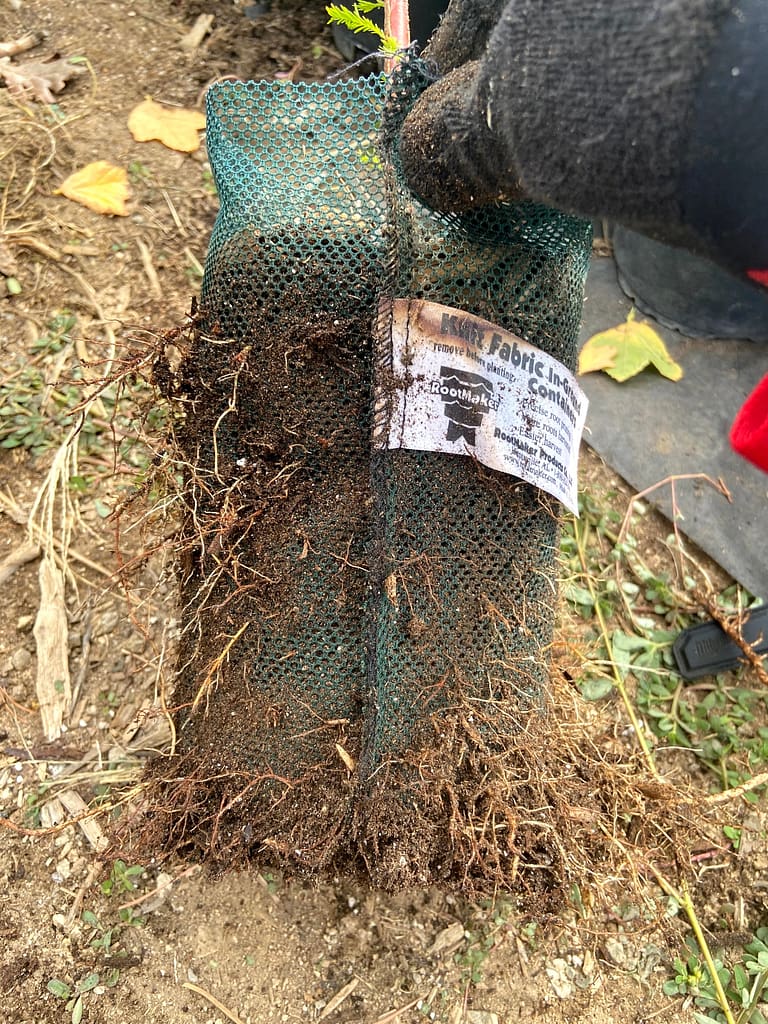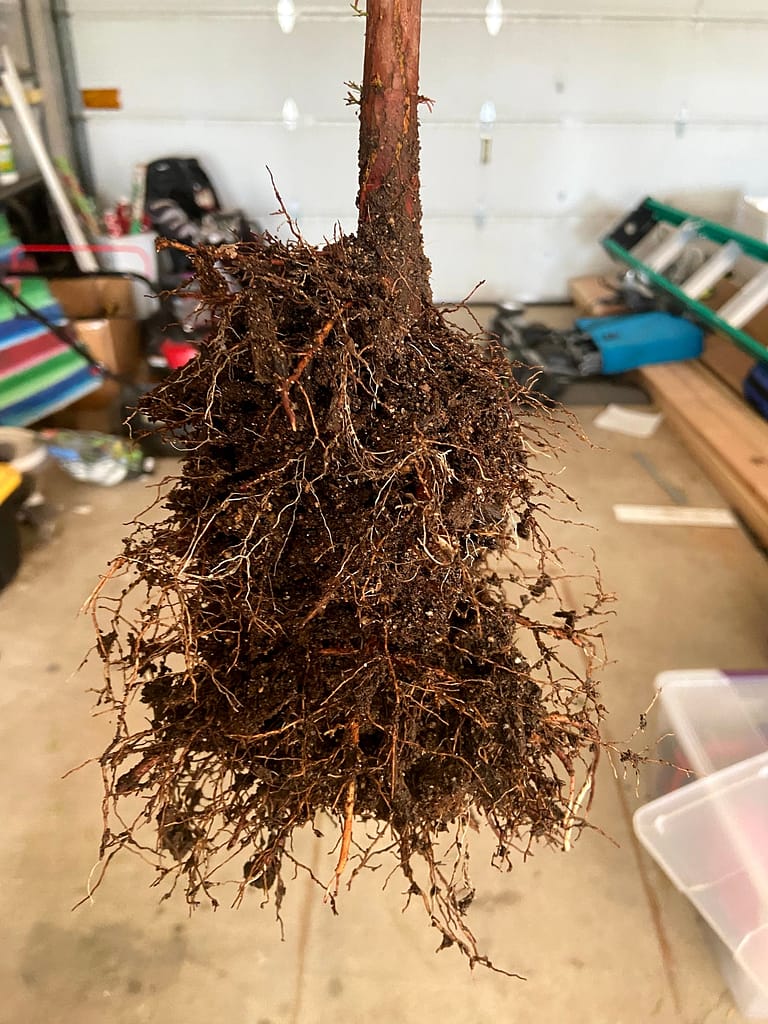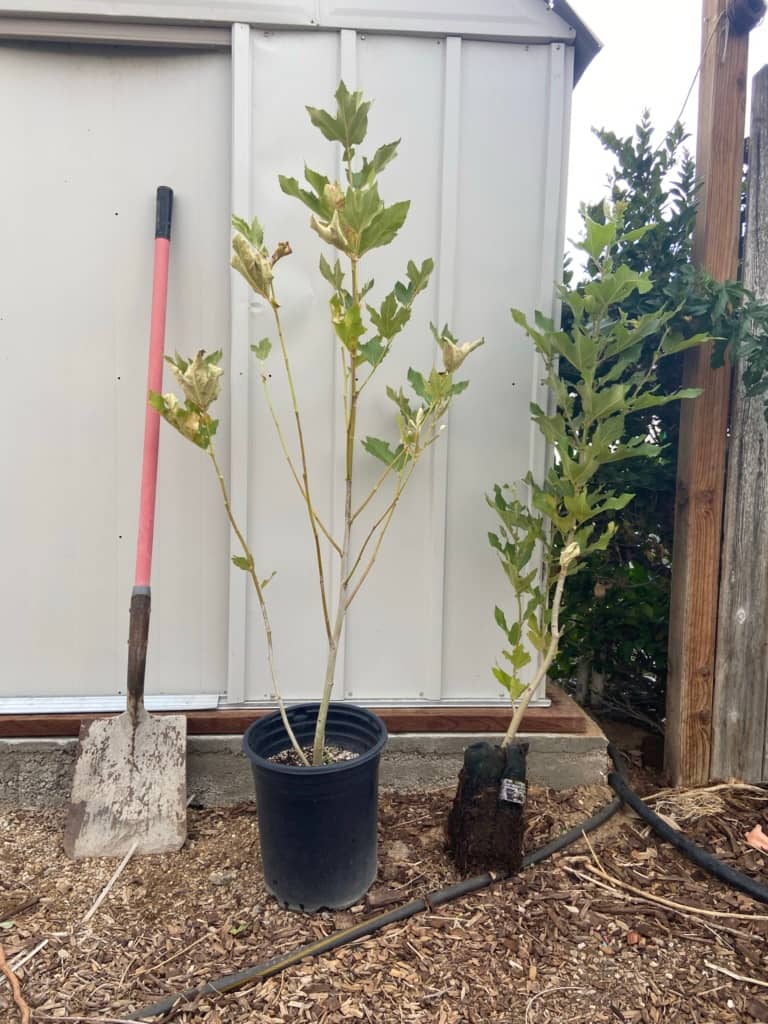Why Do Fabric Pots Grow Better Trees?
Fabric pots, along with many other root pruning containers, prevent circling roots in containers and instead increase fine root production within the container. This produces a tree that transplants more successfully, and prevents future problems from circling roots that can choke each other out.
What Is Root Pruning?

Root pruning is what happens when a root tip encounters air, fabric, or is severed through constriction or manual tools. This causes the root tip to produce little root branches closer to the center of the container. What this produces after happening many times is a large amount of fine roots, with little to no thick structural roots which take up space and do not absorb nutrients or water.

Why Are Fibrous Roots Better Than Thick Roots?
Fibrous roots are responsible for water and nutrient uptake in plants. Thick roots are necessary to hold a tree in it’s permanent location, but a pot is not a permanent location. The major advantage of having a significant amount of fine roots is that when the tree goes through transplant shock, the fine roots allow the tree to uptake more water and reduce the stress of transplant shock.
This also allows a tree to grow larger with a smaller root ball, which makes them easier to plant and handle. It turns out the size of the root ball isn’t as important as what is in the root ball.

What Do RootMaker® Fabric Bags Bring
RootMaker® Fabric Bags root prune plants as they grow. The roots go through the little holes provided and then are severed when they become too thick. This is what creates the fibrous root systems. The holes in the bag allow the plant to have access to more water and nutrients than it normally would have in such a small soil volume. This fibrous root system sets the plant up for success after transplantation.
Other Advantages of RootMaker® Fabric Bags
- Lightweight
- Easy Installation
- Smaller Holes Needed
- No Circling Roots
- Vigorous Growth
- Less Waste To Handle (Plastic Pots)
- Increased Short and Long Term Health of Tree
- Root Ball Stays Intact Instead of Falling Apart
- No Need To Stake The Tree (If You’re Buying From Me)
Here is a quote about the grow rates and fibrous root systems of soft containers in general.
“At the end of the growing season, plants in soft containers were 5 to 15 percent larger than plants in the same size rigid plastic container.
Dr. Carl E. Whitcomb – Oklahoma State University Professor of Horticulture
This was surprising because the rigid containers were green and the soft containers were black and, therefore, had slightly higher soil temperatures.
However, the reason for the growth increase was highly visible when the containers were removed. Plants grown in soft containers had a more fibrous root system than plants in rigid containers.
Counts of white root tips visible on the surface of the root ball were more than six times greater on plants grown in soft containers.”
If These Are So Great, Why Isn’t Everyone Using Them?
I ask myself this question a lot and it really just comes down to “If it ain’t broke don’t fix it!” for a lot of nurseries combined with a huge expense to completely alter their production. This would include tractors, potting machines, watering systems, changing fertilization and chemical applications, etc. Even if they wanted to switch it would be a process that happened over time and would be a huge commitment that would require a belief in the system beforehand.
There is also resistance from the landscaping industry as they would rather get them the way they used to and not have to alter their process or adapt to the new system.
Outside of that, you do see many nurseries moving towards root pruning containers whether those are air pots, fabric bags, air root pruning plastic containers, or other types of containers.
